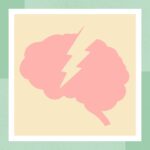Technology allows us to track more specific health measurements than ever before — including sleep. Research shows 1 in 3 Americans have used an electronic sleep tracker and nearly 70 percent of them changed their behavior because of what those devices showed.
But experts warn that what you can learn from your sleep stats, at least currently, has its limits.
1. Sleep Trackers Are Not Medical Devices
Sleep tracking technology has improved rapidly in recent years, but the majority of sleep trackers on the market have not gone through the rigorous testing required for approval by the U.S. Food and Drug Administration (FDA).
Rather, according to a position statement from the American Academy of Sleep Medicine (AASM), sleep trackers qualify as “lifestyle or entertainment devices,” not medical devices.
This doesn’t mean sleep trackers can’t be useful tools, but it does mean that they cannot be used to diagnose or treat sleep disorders.
2. The Data May Not Be Accurate
Those numbers on your tracker may not be entirely correct.
“Many sleep trackers use an accelerometer, a device that measures how much you move, to estimate sleep,” says Michelle Drerup, PsyD, the director of behavioral sleep medicine at the Cleveland Clinic’s Sleep Disorders Center in Ohio. If you spend time in bed reading or scrolling through your phone, the lack of movement will likely register as light sleep, she notes.
By the same token, if you wake up in the middle of the night and stare at the ceiling without moving, the tracker won’t register you’re awake. It’s important to know that the data can be flawed in these ways, says Kelly Glazer Baron, MPH, PhD, a clinical psychologist with specialty training in behavioral sleep medicine and a professor at the University of Utah in Salt Lake City.
Some newer generations of sleep trackers, such as smartwatches, are sensor-based and include metrics like pulse oximetry, skin temperature, and heart rate in addition to movement. But research shows that while these devices are good at detecting when someone is asleep, they are less reliable at detecting wakefulness and tracking sleep stages accurately.
3. The Most Accurate Sleep Tests Monitor Brain Waves
Testing in a sleep lab is far more precise than a movement-based tracker. Polysomnography (the type of test that sleep labs use) is considered the gold standard in measuring sleep. These sleep studies monitor brain wave activity, eye movement, muscle tension, movement, and breathing for accurate measurement of the four stages of sleep, Dr. Drerup explains.
One study of 34 healthy young adults tested the performance of seven consumer sleep-tracking devices compared with polysomnography. The researchers found that overall, the devices tended to accurately detect sleep, but were less accurate than polysomnography at tracking wakefulness. The devices also displayed mixed results in their ability to accurately detect sleep stages.
4. Trackers May Encourage Technology Use Before Bed
One downside to wearing a device or using a sleep-tracking app is that they might prompt you to pick up and start using a mobile phone or other screened device before bed, which is a drawback because the light from your phone and other screens can make it tougher to fall asleep.
If your phone or another device is near you in bed so it can track your sleep, you may be more likely to hear alerts for incoming texts and emails when trying to fall asleep, Drerup says. The ideal bedroom setting is device-free. “Devoting the bed and bedroom to being a calm, relaxed environment is essential for having a healthy relationship with sleep,” Drerup says.
5. Sleep Trackers May Help You Notice Certain Sleep Patterns
The main health benefit of trackers is they can help you recognize patterns in behavior that may affect your health. “A sleep tracker can be helpful if you are trying to extend or lengthen sleep time because you don’t allow enough time for sleep because of a busy schedule or a tendency to binge-watch television shows before bedtime,” Drerup says. They can be a reality check for how many hours of shut-eye you are actually logging every night — and how many days in a week or month you are cutting your rest short, she says.
Drerup adds that trackers can be particularly helpful for people who suffer from insufficient sleep syndrome, in which people don’t spend enough time in bed to get an adequate amount of sleep. If it takes you awhile to fall asleep or you wake up throughout the night, a tracker might alert you to how much sleep you’re actually missing out on.
6. Over-the-Counter Sleep Trackers Can’t Diagnose Sleep Disorders
The landscape around sleep trackers is changing, and the technology is quickly improving. Currently, many of the commercially available sleep trackers are not designed (or FDA-approved) to diagnose sleep disorders or other health problems.
Samsung and Apple, for example, have both recently introduced features on their smartwatches that may detect signs of sleep apnea, but both companies make it clear that these devices do not replace a visit to the doctor. Rather, they can help signal that you might have a sleep disorder and should see your physician for a proper diagnosis.
In 2023, the FDA cleared the Belun Sleep System for at-home sleep apnea testing. The wearable ring measures pulse rate and blood oxygen levels and uses AI algorithms to evaluate sleep-related breathing disorders. The device is only available with a prescription from a healthcare provider.
7. For Some People, Use of Sleep Trackers May Worsen Sleep Struggles
Interestingly, sleep trackers can make insomnia worse if people (in an attempt to sleep longer) end up spending more time in bed lying awake. “It may seem counterintuitive, but part of the behavioral treatment for chronic insomnia is to actually spend less time in bed trying to sleep,” Dr. Baron says.
Indeed, experts say that spending too much time in bed not sleeping can actually train the brain to associate your bed with not sleeping or unsuccessfully trying to fall asleep. And they also caution that over-attention to your sleep numbers in general can cause a level of anxiety that (you guessed it) interferes with your sleep.
There’s even a term for this phenomenon: orthosomnia. As described in a research paper, people with orthosomnia may have insomnia-like symptoms while obsessing about getting ‘perfect sleep’ because they’re so concerned with improving their sleep tracking stats.
To combat orthosomnia, the American Academy of Sleep Medicine advises putting all electronics away (which includes not looking at your tracker if you’re wearing it) at least 30 minutes before bed.
8. Tracker Data May Be a Game Changer for Sleep Researchers
The fact that your sleep last night was 20 minutes shorter than your nightly average generally doesn’t have sweeping implications for your health.
But the information from popular sleep tracking devices does present a potentially huge opportunity for sleep researchers. The previously mentioned American Academy of Sleep Medicine position statement, for example, notes that these devices could allow researchers to gather larger datasets about sleep and health trends that could identify previously unrecognized links between sleep and disease or health outcomes.
The Takeaway
- Sleep trackers, though popular, are not FDA-approved to diagnose or treat sleep disorders and should not replace professional medical evaluations.
- These devices can offer helpful insights into general sleep patterns and may even signal symptoms of a sleep disorder that warrant a doctor’s visit, but inaccuracies can occur.
- Sleep studies in labs remain the gold standard for diagnosing sleep disorders, as they closely monitor multiple indicators of sleep, including brain wave activity, eye movement, and breathing patterns.
- If you suspect a sleep disorder or experience persistent fatigue, seeking the advice of a healthcare provider is crucial rather than relying solely on tracker data.



